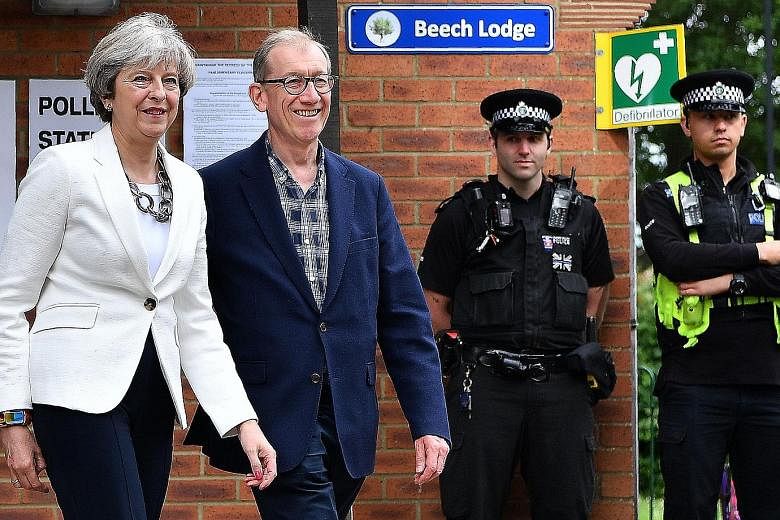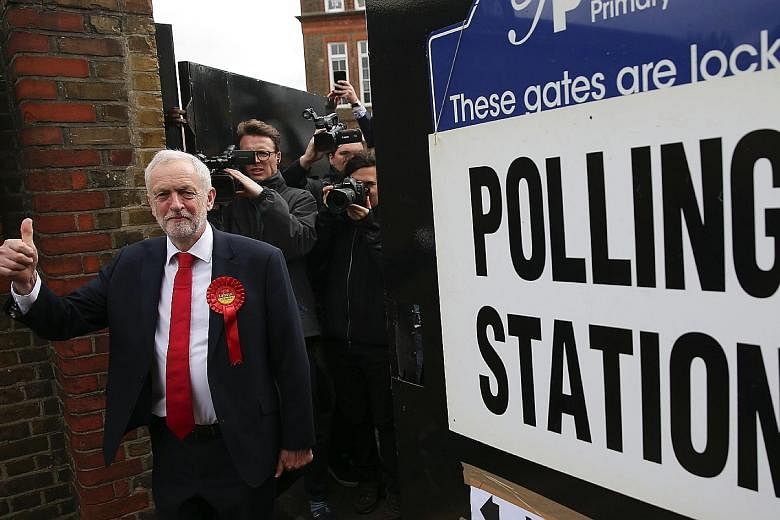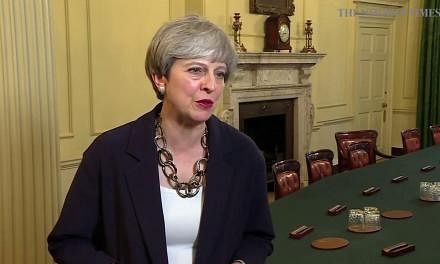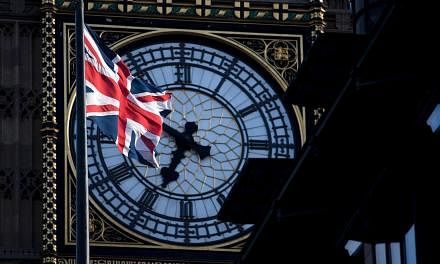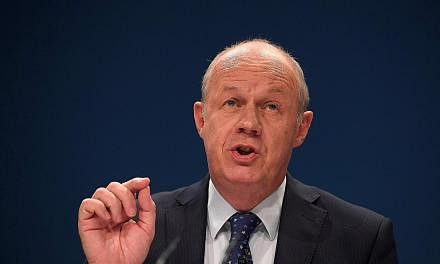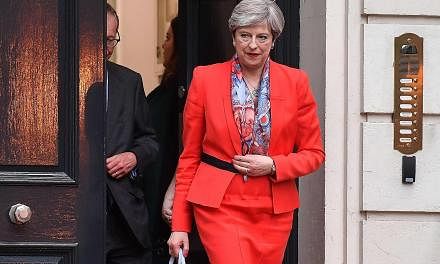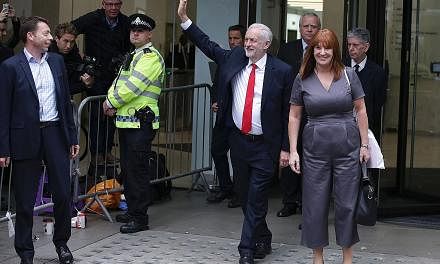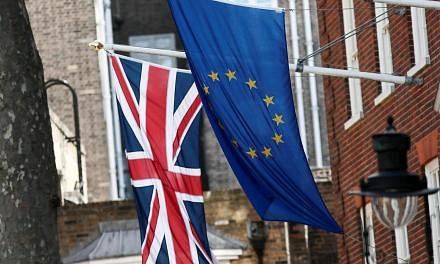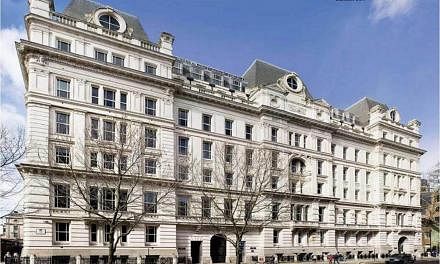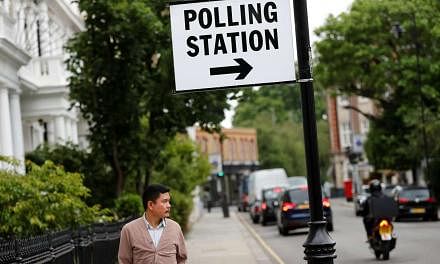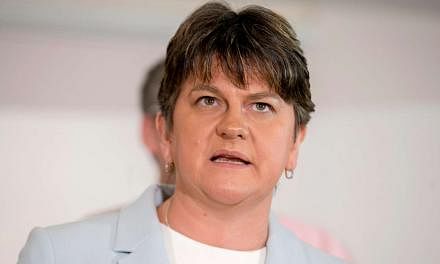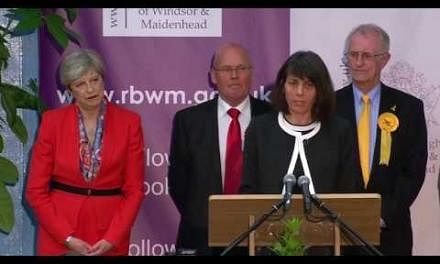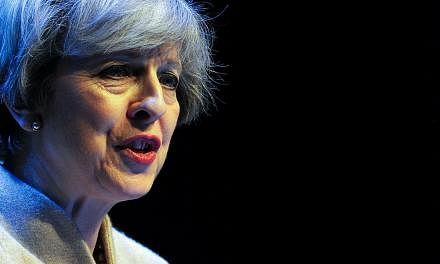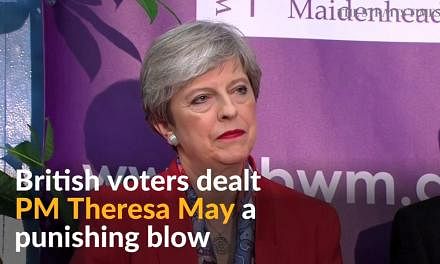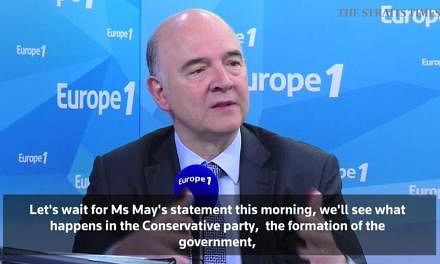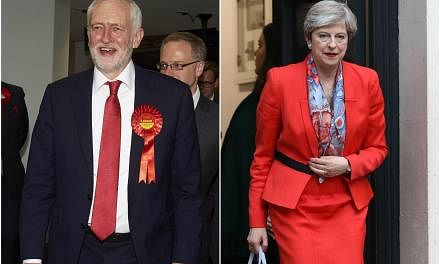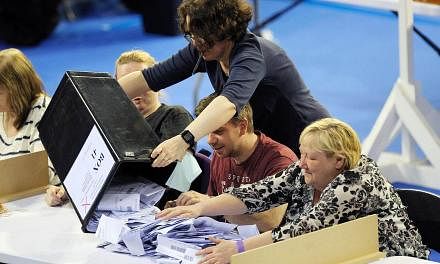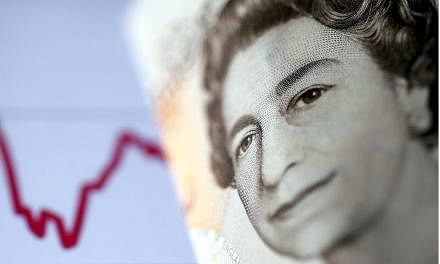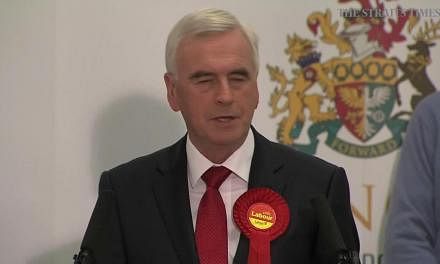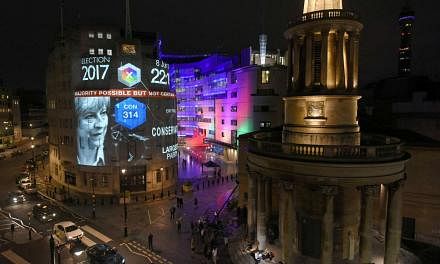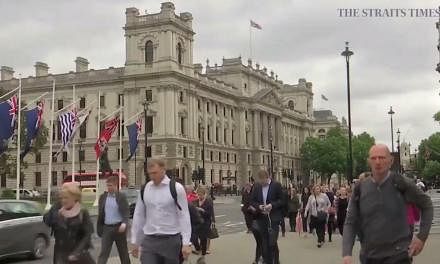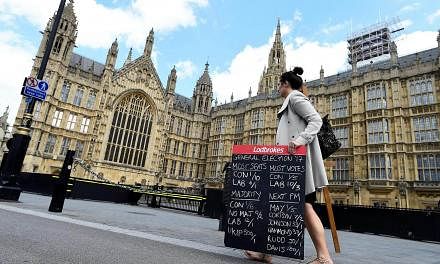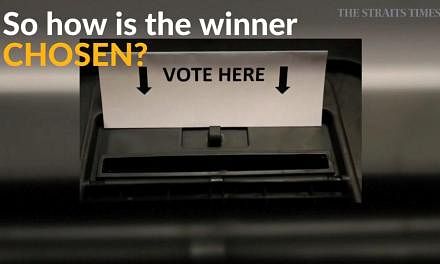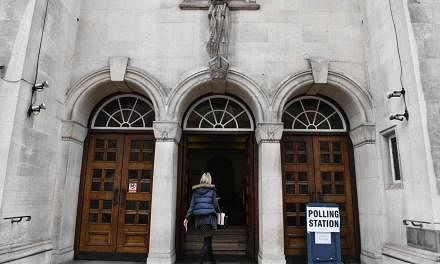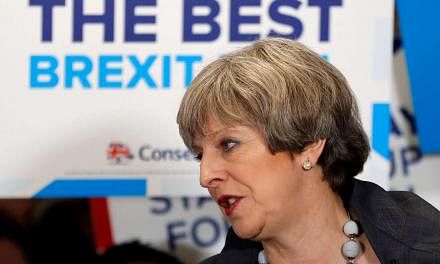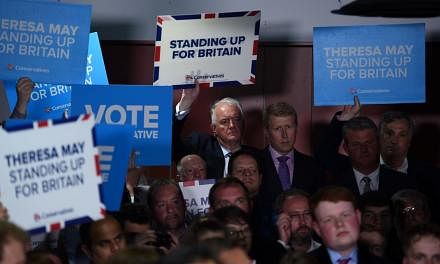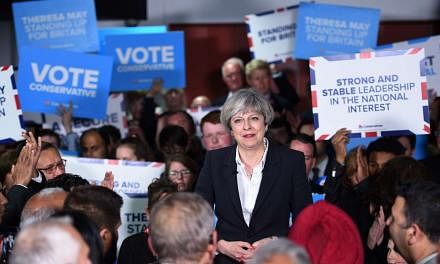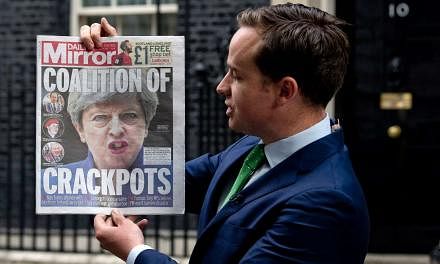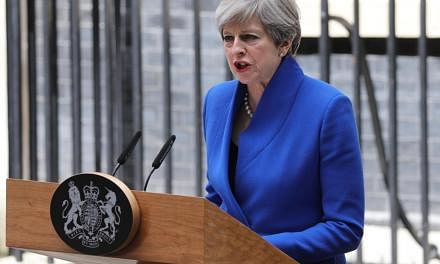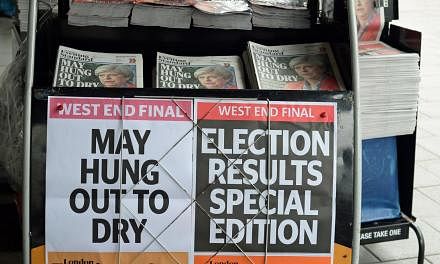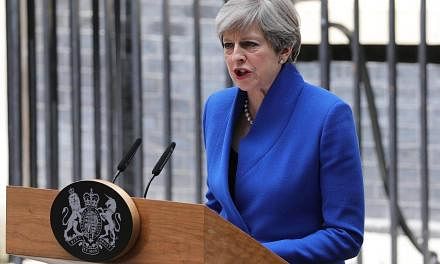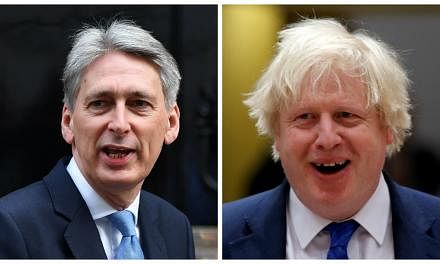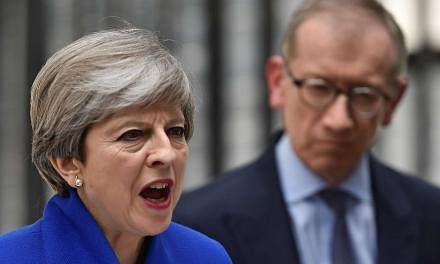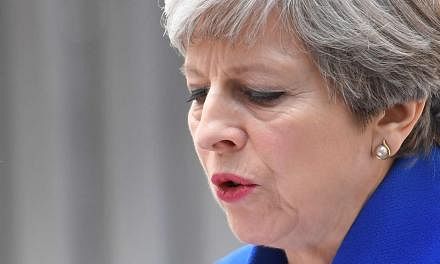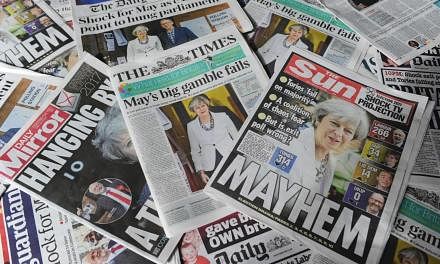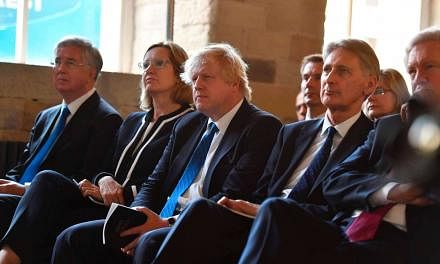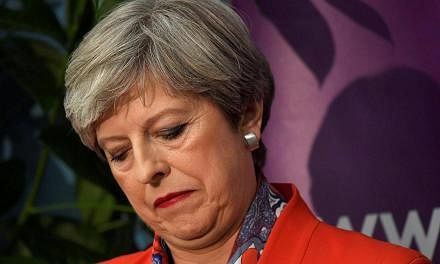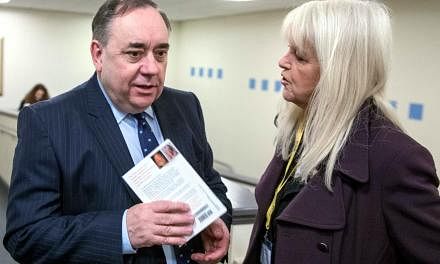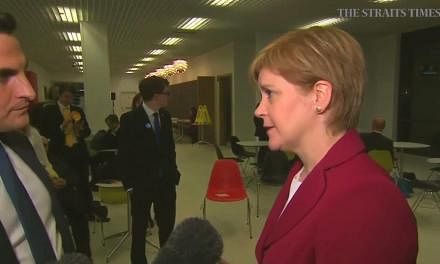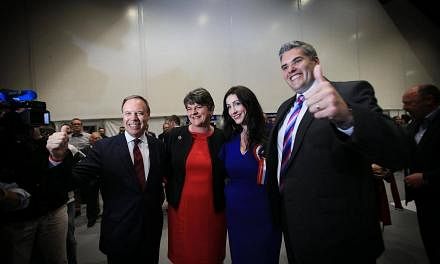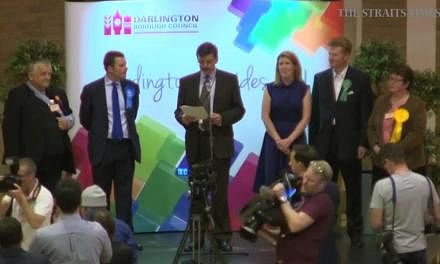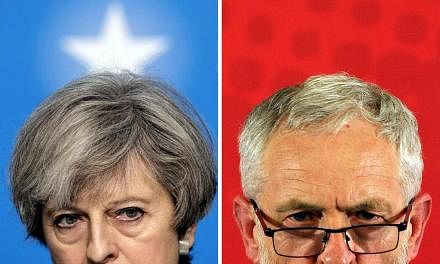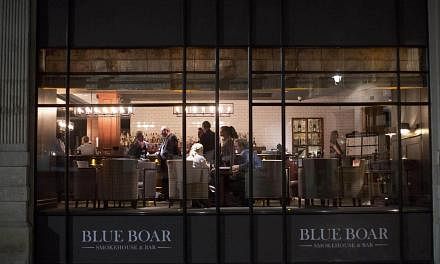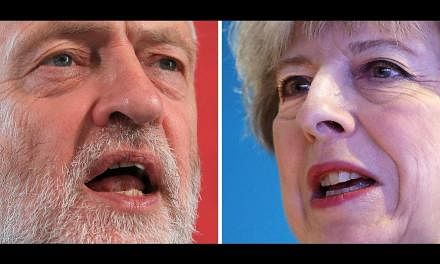Britons have got used to heading to the polls.
It was the European Union referendum last year and before that, the 2015 general election. Yesterday, voters did it yet again after Prime Minister Theresa May, nine months into the job, called a snap election.
"Here we go again," blurry-eyed bartender David Thompson, 35, said as he traipsed to a polling station in Hackney, east London. "I can get used to this," he said in jest.
Polling Day felt like any other day yesterday. Office workers darted across the pavement on London Bridge into the City, the capital's commercial heart, unbothered about the new metal barrier that now separates them from the road, or the several pairs of police officers standing guard outside a sealed-off Borough Market around the corner.
Just 500m away, in a polling station closest to the crime scene, security manager Daniel Alfred, 55, had just cast his ballot. He remembered last Saturday night, when three men mowed down pedestrians on London Bridge with a rented van, then went on a stabbing spree at Borough Market in the third terror attack on the country in the past two months.
"When I got home after my night shift, my doors were triple-locked. My kids were so scared, thinking the terrorists were coming for them," said the Nigerian immigrant, who has lived in Britain since 1992.
"The present prime minister was home secretary a year ago. She should have put things in place so that such terrible incidents wouldn't have occurred."
But security is not the only issue on their minds, voters say. Healthcare, education and Brexit are also concerns that shaped their decisions. "If you want to go to your GP, you should not have to wait three weeks," said Ms Mary Gallaghar, 75, a retired receptionist who was making her way to Pakeman School in north London to cast her vote.
She has lived in Islington North, where Labour Party leader Jeremy Corbyn was MP, for 50 years.
"I think he is quite good, you can talk to him about things. He listens to you," she said of Mr Corbyn, who has held the same seat since 1983 but is being challenged by a record nine other candidates. He had just been to the same polling station an hour earlier, causing a media scrum.
"I don't care who comes into government. As long as they look at healthcare and schools and those things. I will even have Boris Johnson," Ms Gallaghar said, referring to the controversial foreign secretary who used to ride around on his bicycle and greet everyone he met.
At St Mary the Virgin Church in Rotherhithe, local Labour councillor Bill Williams, 47, pitched up in shorts, a T-shirt and flip-flops on a blustery morning. "The Liberals and the Tories did a lot of damage to this country when they were in a coalition together, and it is time for a different kind of politics. And I think the Labour Party will be the party that will be able to deliver that," he said.
Less certain was accountant Swati Phadka, 33. "Things kept changing and I wasn't as sure as I should be," she said after casting her vote in the Labour-held constituency. "It is not about who you want, but who you would rather not have."
Her husband, Mr Surandra Iyer, 32, also an accountant, was more sure. He went for Labour. "I have not been very happy with the way the Conservatives have handled the Brexit process in the last one year. Labour might not be any different, but they have said they will go for a softer Brexit."
For public relations professional Simon Hinds, 57, it was the Tories' mixed signals over Brexit that he disagreed with. "I am confused about the Conservative position on negotiating Brexit. On the one hand, they say we want a deal that is good for both Europe and Britain. On the other hand, they say we need to get out our boxing gloves to beat them up to get the best deal we can. They have been lucky they have got away with this confusion."
Over 40,000 polling stations were open yesterday, with 46.9 million people registered to vote. Some ballots were cast by postal voting.
The final constituencies are expected to declare their votes by noon (7pm Singapore time) today.
INTERACTIVE: Latest results, polls and profiles str.sg/ukresults
MICROSITE:
• Instant analysis: By ST's Jonathan Eyal and Tan Dawn Wei
• Video: Britons go to the polls
• Explainer: All you need to know about the UK election
